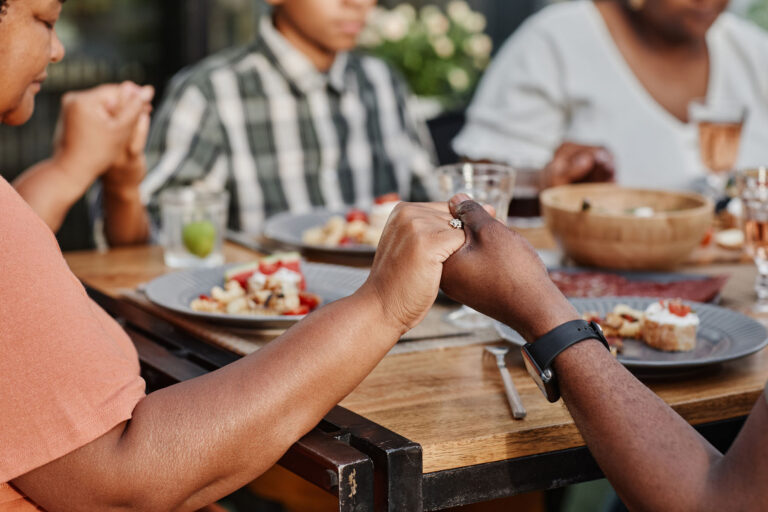Last week, I started a series on getting ready for your next big thing. The first part focused on three key issues to consider while waiting for your blessing to arrive. This week, in part two of the series, we are going to switch gears and focus on some things you can do to get ready while you wait.
As I mentioned in part one, I was seeing someone when I met Reggie. So, Reggie waited for me to become available for him to pursue. In the meantime, Reggie didn’t sit around moping or complaining because I was unavailable. Instead, Reggie worked on himself. After my relationship with the other guy ended, I did the same.
One area in particular that we worked on was improving our relationship skills because an important component to a successful marriage or being successful at life is having good relationship skills. Some say, “It’s not what you know, it’s who you know.” I will go even further and say that it is not just whom you know, but how you interact with them that determines your success. You can know the hiring manager when looking for a job or have met Mr./Ms. Right, but if s/he doesn’t like you or worse, feels mistreated by you, it is going to be an uphill battle.
It is not just whom you know, but how you interact with them that determines your success. #AreYouReady Click To TweetThe nice thing about developing relationship skills is you don’t have to have the relationship you’re waiting on to work on improving your skills. You can begin with your current relationships (i.e. family, friends, and co-workers).
So, what relationship skills do I recommend you work on? I have divided them into two categories: communication and problem-solving.
Communication
1. Say What You Mean
I am pretty direct and forthright in most of my communications. However, harmony was one of Reggie’s strengths, which means that if Reggie held a differing opinion, he didn’t always say so. If an issue wasn’t a big deal to him, even if he preferred to do something else, Reggie just went with what I wanted to stay in harmony with me.
Unfortunately, by not sharing his preferences, opinions, and ideas with me, Reggie didn’t give me the opportunity to embrace them or know his true thoughts and feelings, which feeds intimacy. Not only that, on those rare occasions when his silence was actually motivated by a fear of rejection or how I may react, then that needed to be addressed and resolved because fear stifles intimacy.
Sharing your true thoughts and feelings feeds intimacy. Fear stifles intimacy. Click To TweetAnother reason for not saying what we mean is trying to protect someone. Often people limit what they share in an effort not to hurt someone. The desire not to inflict pain is commendable. However, that pain may be what God would use as motivation for me to change. By not telling me how you really feel, you can keep me from growing.
It is better to just say what you mean. This requires being vulnerable and/or brave, which, as Dr. Brené Brown says, is the path to deep meaningful connection. So, basically, the reward is too great not to risk it.
2. Seek to Understand Before Seeking to Be Understood
This skill transformed my relationships. I am a verbal learner, so I process information best when I am talking. So, a sounding board, someone who listens while I talk through ideas, is very helpful to me. This works great when I am processing my own ideas, but to process someone else’s I have to listen.
Because I am a verbal learner, my natural tendency is to begin talking or formulating my response as soon as I understand some of what someone is saying in an attempt to begin processing it. The problem with this is that I may interrupt or worse, draw the wrong conclusions. For me, this is a constant battle, especially in meetings at work, but I am more victorious when employing this skill.
Also, communication is more than the spoken word. Communication also includes nonverbal messages, tone of voice, and the emotions and intentions motivating the words. A big part of understanding is discerning a person’s heart—the emotions and intentions behind the words. Demonstrating that you heard someone’s heart goes a long way in making him/her feel heard, which is vital to effective communication.
Problem Solving
1. Keep Calm and Carry On
Emotions can run high when having certain discussions. When they do, conflicts can arise. The key is how you handle them because if you don’t respond well, you can make the situation worse. The correct way to handle it is to remain as calm as possible, so you remain in control of yourself. When you control yourself, you’re more likely to control your environment.
Also, respond with empathy so the person you are conversing with feels understood. When you remain calm and respond with empathy, often you can resolve the situation in a courteous way.
When you control yourself, you’re more likely to control your environment. Click To Tweet2. Only One Person in the Ambulance at a Time
This is a wonderful piece of advice that Reggie and I received when we attended a series Pastor Keith Battle of Zion Church did on dating. Only allowing one person in the ambulance at a time is a method for focusing on the issue at hand until it is resolved because only one person can get treatment, medicine, or healing at a time. The other person has to wait until the first person is healed, then s/he can get in the ambulance and get his/her healing.
Prior to that sermon, when someone would come to me to discuss an issue that they had with me, I was much more likely to bring up something they did that bothered me. Then, we would argue over the two issues, theirs and mine, without resolving either one of them. Thanks to Pastor Battle’s advice that didn’t happen with Reggie and me because we only allowed one person in the ambulance at a time.
So, if Reggie came to me with a complaint, even if I had a complaint of my own, I didn’t bring it up until we resolved Reggie’s issue. Then, if I still felt my complaint warranted conversation, I would mention it, but only after we resolved Reggie’s first. That way, we aren’t complaining. We are resolving. One of the foundational truths of our relationship was that “we had to work it out.” This relationship skill helped tremendously in that regard.
3. Your Friend Is Not Your Enemy
Not viewing a friend as an enemy has to do with how we approach conflict. There is a difference between disagreeing with a friend and battling an enemy. Disagreeing with a friend is about stating a differing opinion, whereas battling an enemy is about defending ourselves often by attacking our adversary.
It all begins in the mind before any words are actually spoken. This means the conflict begins with the intentions with which we start or respond to the conversation. If we frame our friend’s comment as a differing opinion rather than an assault on our person, there is more likelihood the conversation will go smoothly. If not, we have set ourselves up for a battle. Perception is reality, so perceive your friend as just that and it is more likely they will respond in kind.
These are just some of the relationship skills you could work on to get ready for your next blessing. But you don’t have to stop there. I encourage you to make improving your relationship skills, and ultimately, your relationships, an ongoing part of your self-improvement process whether you are waiting for a blessing or not. As your relationships improve, so will your life by making you a happier, healthier, more positive person. And positive people are more likely to attract positive people and things in their lives. So, waiting or not, your next blessing will be on the way.
The “Are You Ready” Series:
- Part One – 3 Key Issues To Consider When Waiting
- Part Two – 5 Relationship Skills To Improve While Waiting
- Part Three – Tips for Emotional Healing While Waiting
- Part Four – 7 Actions to Take to Improve Your Health While Waiting
- Part Five – 4 Money Moves to Make While Waiting
- Part Six – 5 Tips and Benefits to Growing Spiritually
Questions:
- How would improving your relationship skills prepare you for your next blessing?
- How would improving your relationship skills help improve your current relationships?
- Which of the relationship skills listed would have the most impact on your relationships if you started working on it today? How so?







